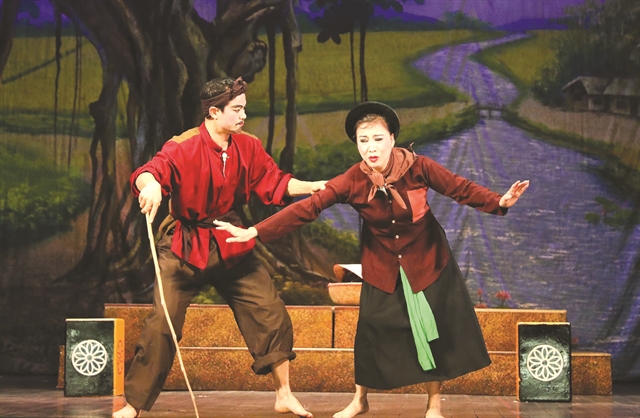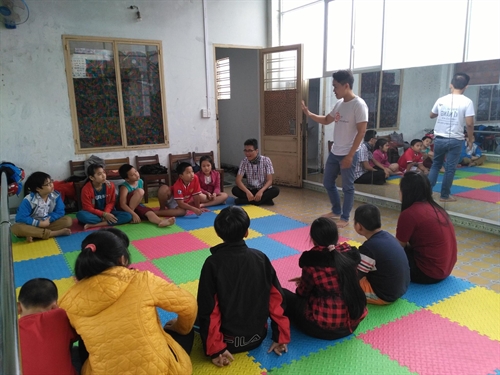 Features
Features

Bright Generations, a non-profit organisation, offers students in Đà Nẵng free classes on soft skills.
 |
| Practical skills: In Bright Generations classes, students learn to deal with change, solve problems, tackle projects, find passion, and be independent and happy on their own. Photo courtesy of the project |
By Đỗ Minh
Ngô Trịnh Vũ from Đà Nẵng realised quickly how his son was changing after he joined a class on real world skills organised by Bright Generations, a non-profit organisation.
“My only son receives indulgence from all members of the family, so sometimes he complains to get what he wants,” said Vũ. “After the classes, he has behaved nicely and become more obedient. He is also learning how to care about other people, even reminding me to obey traffic rules.”
Vũ said the changes were the result of the lessons from Bright Generations. The organisation was founded in 2014 by university students to outfit future generations with both academic knowledge and social skills, according to Ngô Tùng Chi, a student from FPT University, the leader of the group.
“In Việt Nam, people haven’t attached special importance to training in real world skills, though it’s very necessary to form and develop personality and living skills,” Chi said. “We do solemnly expect to help those who participate in our series of multipurpose courses, with great diversity of personalities, to become perceptive and responsible members of society."
Chi and her friends consulted many education sources and built up a programme for students aged from 9 to 12. They attend the classes on the weekend.
All members volunteer to provide the training for free. Parents are encouraged to donate money for teaching aids - about US$9 for a three-month course.
“We work to educate the next generation not to just specialise in one area, but also to be cognisant of social skills, and interested in the environment and climate change,” Chi said.
Students acquire the knowledge through interesting stories, games and lessons. They watch educational plays and films, and learn about art.
They learn practical skills like how to make a fire; first aid for when someone is bitten by a snake, dog or insect; and gardening. They are taught to talk about their emotions and dreams, and how to manage their anger.
"In the future, the children will have good personalities and become good citizens who are responsible in society and their community,” Chi said. "Bright Generations has a special mission to be a key for life. First, children need learn to ask questions, deal with change, solve problems, tackle projects, find passion, and be independent and happy on their own.”
Since 2014, the group has organised different programmes such as “I Love Honesty”, “Protecting the Environment”, “In Disaster” and “How to Survive”.
Nguyễn Trần Đức Hải, 9, said he felt interested in the classes, as he learnt many useful lessons.
“I joined the programme for two weeks with lessons about behaving with parents, grandparents and other elders,” Hải said. “I like it much because learning is joyful. We play and paint together. We are divided into small groups and work together to discuss issues given by the teacher.”
Hải said he appreciated the lesson on how to avoid vicious dogs, because he’s afraid of dogs and no one has told him how to act around them before.
Volunteer Thái Thị Phương Ánh at the Đà Nẵng University of Medical Technology and Pharmacy said sometimes student were too shy, and hesitated to join their peers in team work. But when they got to know each other better, they all expressed enthusiasm about working in class.
“They always go on time and wait for lessons," Ánh said. "They are nice and eager for new things. We target the positive change in the students. We hope that the modest lessons today will equip them with knowledge and skill that help them grow up to be responsible in the future.”
Though Bright Generations received classrooms from the Bông Sen Education Centre, the volunteers also have financial obstacles, especially as more and more parents decide to send their children to the programmes.
“We just design lessons for pupils from 9 to 12, but recently parents of younger children want to join, so we hope that in the near future, we can provide free classes for students of different ages,” Chi said. “We will try our best to bring the meaningful programme to more children. Each class is full of smiles, easing our hardship and encouraging us.” VNS




